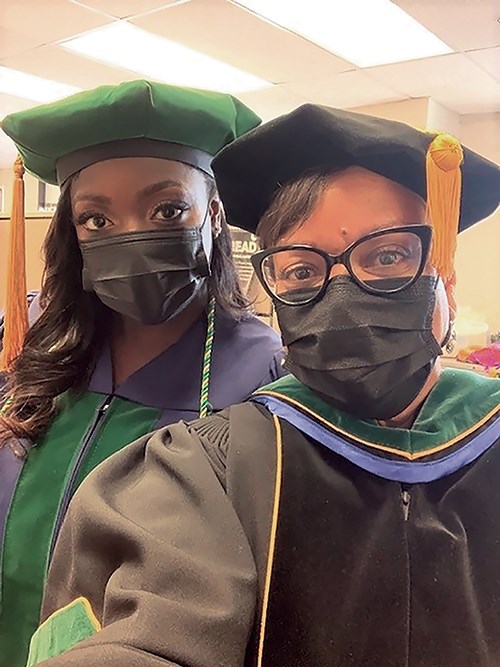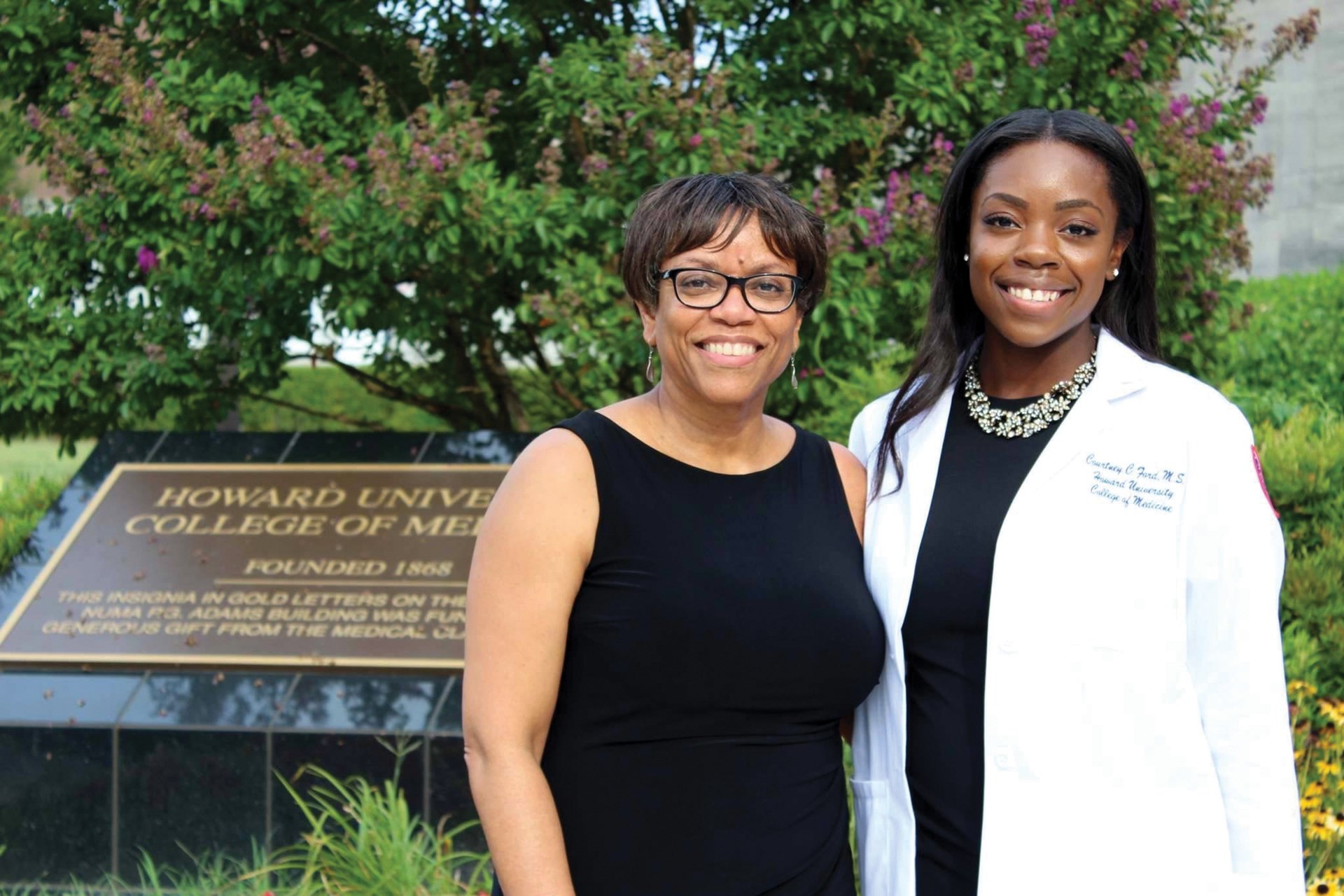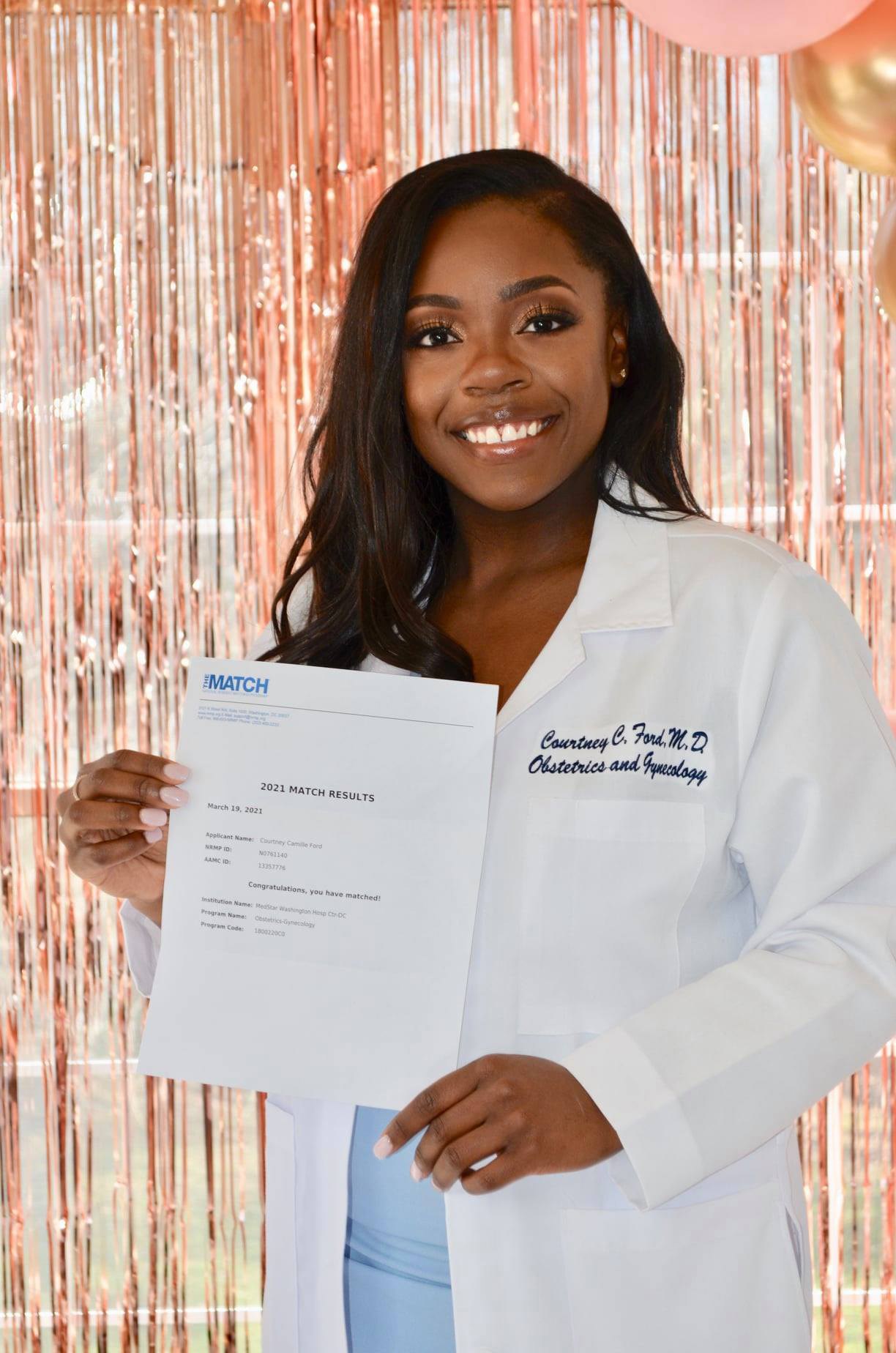“I always tell the story of Mom coming home one day, and I had my aunt’s head in my lap, and she was wondering what I was doing,” the younger Dr. Husain said. “And I said I was doing a neck dissection because I had found one of my mom’s training videos. And so, I’m sitting there doing a neck dissection on my aunt,” she said, noting she became very familiar with terms such as tonsils, ear tubes, and otoscope. “It was incredibly familiar. I would say that I kept an open mind when I went into medical school, because we all want to do our own thing, but I just found myself still drawn to the head and neck anatomy and the intricacies of it.”
Despite also being an ear, nose, and throat (ENT) surgeon, the elder Dr. Husain allowed her daughter’s interest to grow naturally. “I tried not to push her into anything, but I was very proud of her,” she said. “I was really very happy that she chose to be a doctor first, and then a surgeon, and then following in my footsteps in ENT,” the elder Dr. Husain said, expressing how proud she was that her daughter was able to further chart her own course in an ENT subspecialty.
The shared work and specialty between mother and daughter also contribute to a strong relationship, based partially on a shared language and ability to support one another professionally. “There’s definitely something, almost like a secret language that we have,” the younger Dr. Husain said. “We have our own secret lingo about things, which is kind of fun.”
The younger Dr. Husain added, “A unique part of our relationship, I would say, is that we can share those types of things. I think if I ever came across something that was unusual, I could go to Mom and say, ‘Have you ever seen this?’ And I think the feeling would be mutual. If she saw unusual laryngeal pathology, she might say, ‘Have you seen this type of thing before?’” she said.
The Drs. Husain also described the time they were able to work together briefly, as well as the prospect of working together in the future. “When Inna was in medical school, doing a rotation in Houston, she worked with me because I was in the faculty [at UT Houston],” the elder Dr. Husain said. “I think we could work well together because we can share different aspects of otolaryngology. I can send all my laryngology cases to her, and she can ask me for sinus surgeries and things like that.”
The younger Dr. Husain added, “I think it would be very interesting to work together because it would be with our two strong surgeon personalities. Because in home life, we’re mom and daughter, and in work life, we’re both formidable surgeons.”
Beyond the advice and words offered on clinical topics, the elder Dr. Husain wanted to pass on her appreciation for being a surgeon in general. “I hope that I have conveyed my passion and love for surgery, and that it is one of the most important aspects of my professional life and career,” she said, adding, “There is nothing better than surgery.”
The younger Dr. Husain absorbed her mother’s advice and worldview, noting how important it was to see a woman in her life achieve so much in the field. However, her mother’s success also may have masked some of the difficulties of being a woman surgeon. “Growing up, having a mom who was a surgeon, I didn’t realize how hard it was being a woman in surgery. I think I had this false sense of security,” she said.
“You come into the field, and you realize that, unfortunately, there is a lot of implicit bias against women in surgery,” she continued. “We still deal with a lot of microaggressions, so I hope the next generation of female surgeons read our account and they’re motivated by it.”
A Unique Bond and the Promise of Equity
The bond shared by the mothers and daughters in surgery is one that is built upon love and support, open communication, and a shared commitment to advance women in the field. As representation of women surgeons grows, mother and daughter pairs like those in this article will likely become more common, but for now, these women and their unique relationship show the promise of a more equitable profession.
*Dr. Altieri helped translate some of Dr. Hadzhieva’s comments for this article.













